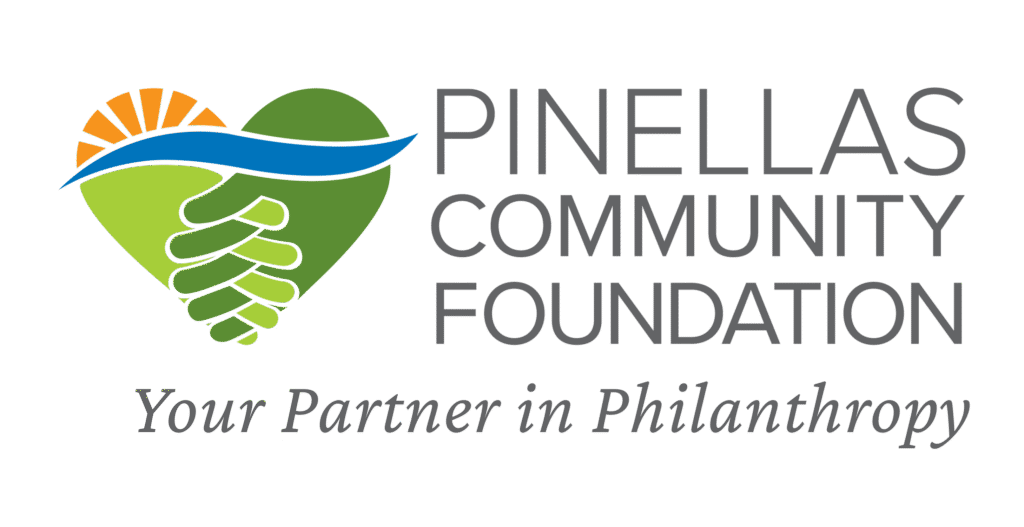Most everyone has a passion for something, be it access to justice, affordable housing, scholarships, curbing childhood hunger, or another interest you connect with personally.
No one understands this better than the recipient of the 2021 PCF INSPIRE Award. Pinellas Community Foundation presents this award each year to a professional advisor (lawyer, financial planner, or accountant) to recognize their role in bettering the community.
This year, the recipient is Byron Smith, a former longtime PCF board member and Partner/Owner of RSM US LLP St. Petersburg. RSM is the leading U.S. provider of audit, tax, and consulting services focused on the middle market.
I always felt I wanted to serve the people in my community. Byron Smith
Though Byron’s credentials are long (CPA, ABV, PFS), and he’s active in countless professional associations, his message to those wanting to give back to their community is short: Think ahead, or it may be too late to give or derive the maximum benefit from your charitable gift.
“I always felt I wanted to serve the people in my community,” said Byron, who gets professional and personal fulfillment from designing win-win strategies for his clients and nonprofit organizations.
While we get tangible benefits from items we purchase or payments we make for tangible things, “a charitable gift does not provide a tangible benefit,” he said. “What you get is a sense of helping the community or organizations you are passionate about.”
Byron’s expertise is planning for wealth accumulation and preservation, taxation and accounting issues regarding estates and trusts, board governance, and tax consulting for nonprofit organizations. The USF accounting degree graduate is skilled at structuring complex charitable gifts to maximize the taxable and financial benefits to donors and receiving organizations.
With this in mind, we asked Byron questions about his philosophy of charitable giving and how he learned so much about our community’s needs and giving opportunities.
Where did you learn about local nonprofit organizations and their needs?
I served on the PCF board from 2008 to 2018 before reaching the end of my term. It put me in a position to learn about nonprofits in the area. Louie Adcock (the late attorney) thought I should get involved with PCF because he knew of my interest in working with charitable organizations and individuals and entities who invest in the community.
How did your interest in serving the community evolve?
I always wanted to serve people in my community and in my professional life. I became involved in estate planning and worked with people who are philanthropic. With a CPA background, I learned how to structure charitable gifting that allows the donor to maximize the tax advantages of their gifts.
What has your experience taught you?
Someone once told me that friends don’t let friends give cash because it is the least tax-efficient way to give. With that said, instead of cash, there are many ways to accomplish your charitable gifting. Securities, land, closely held business interests, and making gifts through trusts, such as charitable remainder or charitable lead trusts, are just a few of the options available.
How do you structure charitable gifts as a win-win transaction for your clients and the nonprofits they want to help?
First, we help people find what they are passionate about and what they are looking to accomplish with their gifts. We then discuss the various instruments for charitable giving that will help organizations they support while maximizing the tax benefits and their overall financial objectives. We also want the gift to make sense financially for the organization and for accomplishing its mission. Most importantly, we want the organization and the individual to build a relationship. There are many ways to pair an individual with an organization. It’s about listening to people who want to give and finding organizations whose missions they are passionate about. It has to be a win-win, whether making a donation when they pass away or throughout their lifetime.
How did you learn so much about nonprofits, their needs, and their focus?
You only know what you know. By serving on the PCF board, I learned about all the organizations in the area and what they do. If I don’t know enough about an organization that matches their passion, I use Guidestar (an association that provides information on nonprofits).
I had one client who was not charitable-minded but had a passion for Civil War sites. I asked, “If there is a charity that maintains these sites would you be interested in giving to them?” In this case, I matched the individual with his passion. Once you find a person’s passion, there is almost always an organization serving in that area.
What are the greatest opportunities you see in structuring a charitable giving plan?
Donors must think ahead. If you want to make gifts of more than cash, there is a certain amount of time needed. If you want to give a closely held business or land, it’s a 4- to 5-year plan. How much to give and how to structure the gift requires time to process. I am only helping them structure what they want to do. It’s amazing how much thought clients put into this before they come to a professional to structure a plan. It has to be well thought out — both for giving in their lifetimes and when they pass away. Some things cannot be done if the timing is too close to a transactional event. Let’s say someone wants to give away part of their business. Once they sign a binding letter of intent, they lose half of the benefit of the gift of the business. Once donors tell us what they want to do, we help them structure a plan to accomplish their objective.
What are the biggest misconceptions about estate planning?
Estate planning and charitable giving are for everyone, not just the wealthy. Even though you may have no estate tax to pay, ask yourself if you are taking care of the people and organizations that matter to you. Without a will or trust, the government will tell you how to distribute your wealth. For example, you want your children to be raised to have the same value system you do. Without a will, the government may decide who and how to raise your children. If it’s in your will, you make that decision.
What are a nonprofit’s unique needs related to planned giving on the donor or charity side?
Sometimes nonprofits don’t understand that fundraising is about building long-term relationships. Most organizations focus on what they need today. It takes time to put a plan in place. There is a financial cost for agencies to hire a development director, and then they have to go out and cultivate relationships. Many have immediate needs, but if they don’t plan for the future, they don’t receive those long-term planned gifts. It’s a mindset. The same applies to donors. They have to plan ahead.
Why do you recommend your clients partner with a community foundation?
If you are considering a charitable gift but don’t know the organizations in your community, PCF is a good choice. If you received a financial windfall and want to support a specific type of mission, ministry, or cause but don’t know an organization you want to support, a donor-advised fund allows a current income tax deduction while you decide which organizations to support.
What’s one step a person of any financial background or age should take for planned giving?
The most important step is to find your passion and support it. How you structure the gift, how much, and when can be decided as you go forward in life.
What advice do you give clients concerned about mismanagement of funds related to charitable giving?
Always research an organization before you make the gift. Understand how much is spent on programs, fundraising, and administrative costs. Every organization has administration costs. Understand how the organization works to see if, for example, 80% is for programs. If it is 75% or less, it may or may not make sense. For example, a school provides phenomenal education to students in economically disadvantaged areas. The school’s main financial support comes from the business community and individuals in the greater metropolitan areas they serve. The children pay nothing to go to school, so the school relies on continual fundraising. In this situation, they must spend more than 5-7% on fundraising. I call it the mythical 80% for program spending. You have to look at each organization separately and how they operate.
What sums up your thoughts on philanthropy and charitable giving?
First, look at charitable giving as a voluntary tax. Why do we pay taxes? Taxes are paid to provide infrastructure and support for the community. When we give to a charitable organization, there is no tangible benefit. You are helping your community and the organization you are passionate about. Second, we all benefit from the community we live in. If we are able to and do not give back, then we are only takers.
Is it a myth that community foundations receive and operate only on grants and not private donations?
This is a myth. PCF receives donations, no matter the size. PCF has unrestricted and designated accounts for organizations or causes that donors are passionate about. PCF will work with anyone to help structure any type of gift they wish. You can name PCF to oversee and manage a large amount of funds to specific organizations or missions that can be almost administered as you wish. In another case, when there is a community crisis, PCF can — and has — set up funds to support relief efforts. You can give as little as $5 to as much as $500,000 and beyond for relief efforts. The gift size does not matter. PCF makes sure the funds are maximized for the greatest impact in our community.
How do you feel about receiving the INSPIRE Award?
The INSPIRE Award is a great vehicle to let people know it’s our responsibility to make sure everyone who has the ability to give can give. It is truly an honor that I am not sure I deserve. I only facilitate what people want to do. The donors are those who inspire all of us.
Support the critical capital improvement and equipment needs of local nonprofit organizations by becoming a member of Pinellas Community Foundation. Gifts of all sizes are valued, and through the power of pooled investing, make a lasting impact.



